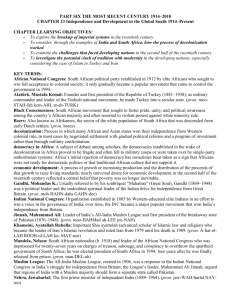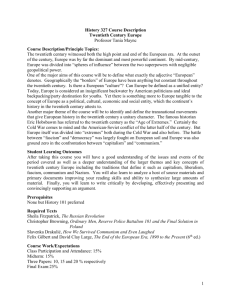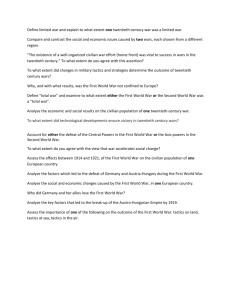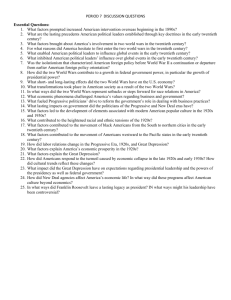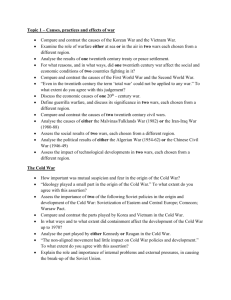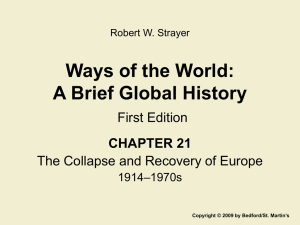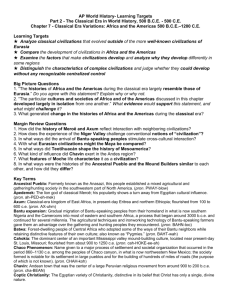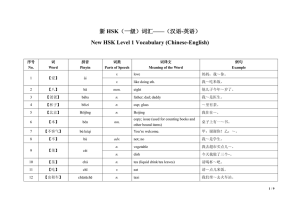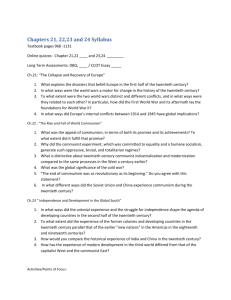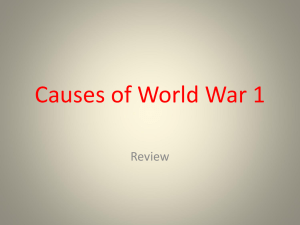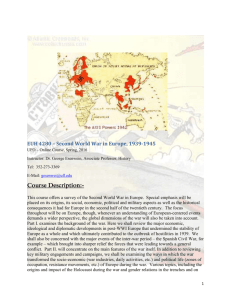Chapter 21—The Collapse and Recovery of Europe, 1914–1970s
advertisement
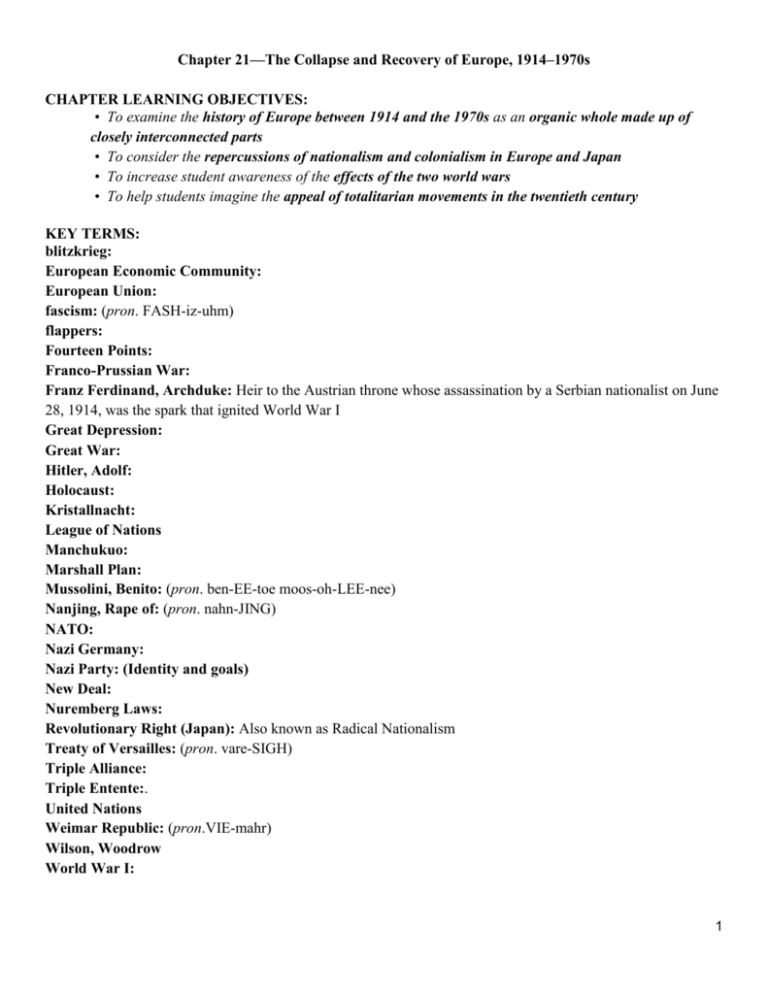
Chapter 21—The Collapse and Recovery of Europe, 1914–1970s CHAPTER LEARNING OBJECTIVES: • To examine the history of Europe between 1914 and the 1970s as an organic whole made up of closely interconnected parts • To consider the repercussions of nationalism and colonialism in Europe and Japan • To increase student awareness of the effects of the two world wars • To help students imagine the appeal of totalitarian movements in the twentieth century KEY TERMS: blitzkrieg: European Economic Community: European Union: fascism: (pron. FASH-iz-uhm) flappers: Fourteen Points: Franco-Prussian War: Franz Ferdinand, Archduke: Heir to the Austrian throne whose assassination by a Serbian nationalist on June 28, 1914, was the spark that ignited World War I Great Depression: Great War: Hitler, Adolf: Holocaust: Kristallnacht: League of Nations Manchukuo: Marshall Plan: Mussolini, Benito: (pron. ben-EE-toe moos-oh-LEE-nee) Nanjing, Rape of: (pron. nahn-JING) NATO: Nazi Germany: Nazi Party: (Identity and goals) New Deal: Nuremberg Laws: Revolutionary Right (Japan): Also known as Radical Nationalism Treaty of Versailles: (pron. vare-SIGH) Triple Alliance: Triple Entente:. United Nations Weimar Republic: (pron.VIE-mahr) Wilson, Woodrow World War I: 1 World War II in Asia: China: Japan: World War II in Europe: Zaibatsu: BIG PICTURE QUESTIONS: 1. What explains the disasters that befell Europe in the first half of the twentieth century? 2. In what ways were the world wars a motor for change in the history of the twentieth century? 3. To what extent were the two world wars distinct and different conflicts, and in what ways were they related to each other? In particular, how did the First World War and its aftermath lay the foundations for World War II? 4. In what ways did Europe’s internal conflicts between 1914 and 1945 have global implications? Margin Review Questions: 1. What aspects of Europe’s nineteenth-century history contributed to the First World War? 2. In what ways did World War I mark new departures in the history of the twentieth century? 3. In what ways was the Great Depression a global phenomenon? 4. In what ways did fascism challenge the ideas and practices of European liberalism and democracy? 5. What was distinctive about the German expression of fascism? What was basis of popular support for the Nazis? 6. How did Japan’s experience during the 1920s and 1930s resemble that of Germany, and how did it differ? 7. In what way were the origins of World War II in Asia and in Europe similar to each other? How were they different? 8. How did World War II differ from World War I? 9. How was Europe able to recover from the devastation of war? 2
